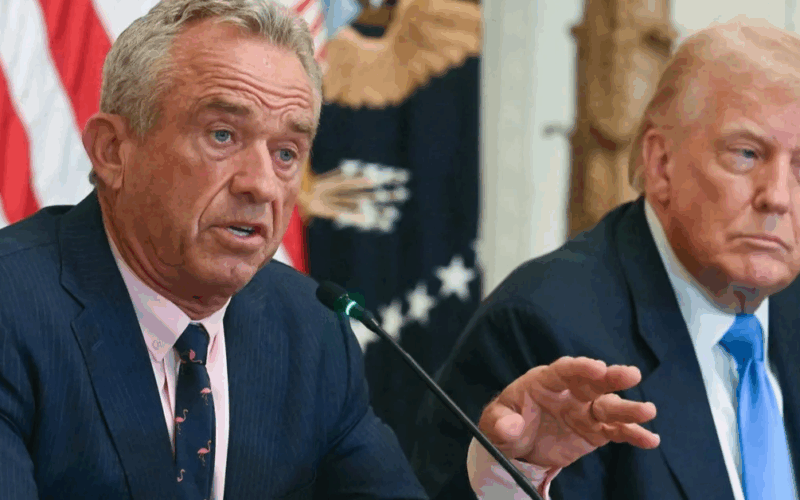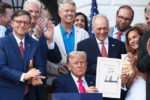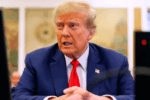WASHINGTON ‒ Former President Donald Trump has publicly challenged drug companies to justify their success in the fight against COVID-19, demanding the immediate release of vaccine data as the Centers for Disease Control and Prevention (CDC) faces unprecedented internal conflict. Trump’s remarks, posted on Truth Social on September 1, 2025, spotlight sharp divisions within the public health community and the ongoing debate about vaccine efficacy and leadership.
Trump’s call for transparency comes shortly after the controversial firing of CDC Director Susan Monarez, who was removed just one month into her tenure following disputes over vaccine policies with Health and Human Services Secretary Robert F. Kennedy Jr., a noted vaccine skeptic. This upheaval has triggered multiple resignations among CDC officials and heightened scrutiny of COVID-19 response strategies.
A Crisis Within the CDC and Vaccine Policy Disputes
The CDC’s recent leadership shakeup has cast a spotlight on the agency’s internal struggle over its COVID-19 vaccine policies. Monarez’s firing and the subsequent resignation of three other top CDC officials highlight differences regarding vaccine administration strategies and pandemic response under Kennedy’s direction.
- Robert F. Kennedy Jr. took a controversial stance on vaccines, impacting CDC policy decisions.
- Jim O’Neill, Kennedy’s deputy, was appointed as acting CDC director following Monarez’s ouster.
- The FDA tightened guidelines on August 27, recommending COVID vaccines primarily for people over 65 or those with underlying health conditions.
“Many people think they are a miracle that saved Millions of lives. Others disagree!” – Donald Trump
Trump Questions Transparency of Vaccine Data
Highlighting the opacity surrounding vaccine effectiveness data, Trump stated he had seen “extraordinary” information from Pfizer that supports the success of vaccines in curbing the virus’s spread. However, he criticized the lack of public access to this data, emphasizing the urgency for clarity amid conflicting opinions.
- Trump urged the CDC to release vaccine study results immediately to resolve ongoing debates.
- Referenced tensions between CDC staff, Kennedy, and the broader political environment surrounding vaccine initiatives.
- Called for an evaluation of Operation Warp Speed, the 2020 federal initiative aimed to accelerate vaccine development.
“I want the answer, and I want it NOW… I hope OPERATION WARP SPEED was as ‘BRILLIANT’ as many say it was. If not, we all want to know about it, and why???” – Donald Trump
Political and Public Health Reactions
Senator Bill Cassidy (R-LA), chair of the Senate Committee on Health, Education, Labor and Pensions, expressed support for Trump’s call for “radical transparency.” Cassidy, a physician and a key figure in Kennedy’s confirmation despite vaccine skepticism concerns, urged an honest discussion about the data demonstrating Operation Warp Speed’s results.
- Cassidy criticized selective use of facts by CDC critics.
- He pushed for a postponement of the CDC’s vaccine advisory panel meeting amid agency turmoil.
- Calls for improved scientific integrity and transparency have increased in the wake of recent resignations.
Looking Ahead: Clearing Up the Confusion
The ongoing demands for vaccine data release underscore a critical moment in America’s public health response. With vaccine skepticism still strong among segments of the population and leadership conflicts fracturing the CDC, clarity on vaccine efficacy and decision-making processes remains vital.
As the debate continues, stakeholders from government, medical communities, and the public await transparent results that could either reaffirm the success of COVID vaccines or reveal areas needing improvement.
Key Takeaways:
- The CDC is navigating a leadership crisis amid disagreements over COVID vaccine policies.
- President Trump insists on immediate public disclosure of vaccine success data.
- Operation Warp Speed’s effectiveness is under renewed scrutiny.
- Political figures call for scientific transparency to restore trust in public health decisions.




